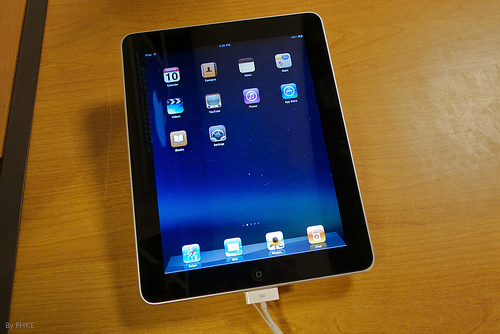Think learning first
At January’s BETT Show, Dr Nick Dennis, from Felsted School, gave a talk emphasising that technology should be used to support teaching and learning, not to dictate what is taught. According to Dr Dennis, mobile learning should never be just an “excuse” to try out the latest technology; technology is just a tool. Instead, schools should think about the learning outcomes first, before they decide which technology to use in order to help pupils achieve these. I think his point is worth bearing in mind.
Create an acceptable use policy
A common fear held by those new to using mobile devices in the classroom is that pupils will misuse tablets or games consoles, using them for anything but the task in hand.
Although this is understandable, there is a strong case that engagement levels sore when mobile devices are introduced into lessons, provided that they are managed correctly.
Create an acceptable use policy to explain to pupils what they are and are not allowed to use their mobile devices for and outline exactly what you want them to achieve each lesson by using technology. You could even ask pupils to help you create this at the beginning of term; by empowering pupils and helping them to feel that they are trusted to use technology responsibly, pupils may be more likely to comply with the rules.
Ensure devices are always ready to be used
There is no point in investing in mobile devices if they are not ready to be used when pupils need them. Whether you are purchasing tablets for pupils to use in class or asking pupils to bring in their own devices, you need to think about how you will charge equipment when batteries are flat. If you don’t have enough wall sockets in your building to recharge devices, you could consider a charging trolley.
Security, storage and access will also need to be thought about; are teachers going to hand out devices to students, or are you going to invest in a self-service locker? The above is by no means exhaustive, but it should provide a starting point for thinking about how to manage mobile learning in our ‘post-pc’ world.
Photo credit: FHKE - http://www.flickr.com/photos/fhke/


















